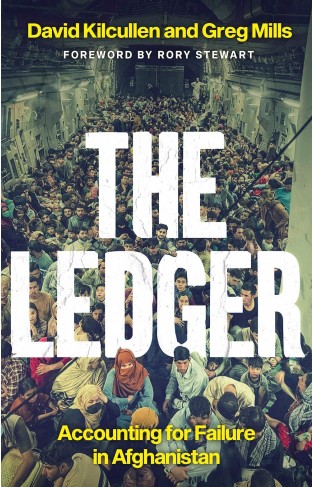The Ledger: Accounting for Failure in Afghanistan
The Ledger: Accounting for Failure in Afghanistan
By:
-
Rs 3,905.75
- Rs 4,595.00
- Ex Tax :Rs 3,905.75
- Price in loyalty points :3295
You saved Rs 689.25.
Due to constant currency fluctuation, prices are subject to change with or without notice.
WITH A FOREWORD BY RORY STEWART
‘[The Ledger] is a clear-eyed analysis made with the surgical precision of two insiders who saw, firsthand, the legion of small ways that the war was lost when it could have been won.’ — THE SUNDAY TIMES
From two seasoned strategic advisers, a withering critique of the West’s chaotic withdrawal from Afghanistan, looking to the future in that country and beyond.
‘These things happened. They were glorious and they changed the world,’ said Charlie Wilson, of America’s role backing the anti-Soviet mujahideen. ‘And then we fucked up the endgame.’ With no support for Afghanistan after that war, the vacuum was filled by the Taliban and bin Laden. The Ledger assesses the West’s similarly failed approach to Afghanistan after 9/11–in military, diplomatic, political and developmental terms.
Dr David Kilcullen and Dr Greg Mills are uniquely placed to reflect backwards and forwards on the Afghan conflict: they worked with the international mission both as advisers and within the Arg, and they have considerable experience of counterinsurgency and stabilisation operations elsewhere in the world. Here these two experts show that there is plenty of blame to go around when explaining the failure to bring peace to Afghanistan after 9/11.
The signs of collapse were conveniently ignored, in favour of political narratives of progress and success. Yet for Afghans, the war and its geopolitical effects are not over because NATO is gone–Afghanistan remains globally connected through digital communications and networks. This vital book explains why and where failings in Afghanistan happened, warning against exceptionalist approaches to future peacebuilding missions around the globe.












